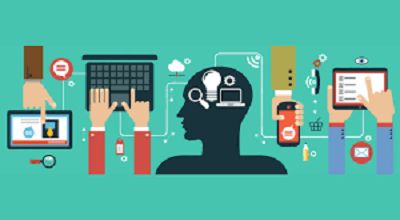Computer Literacy Skills
Computer literacy skills refer to the ability to use computers and related technology effectively. These skills are essential in today’s digital age. While there are more than five computer literacy skills.
Here are five fundamental ones:
- Basic Computer Operation: Understanding how to turn on and shut down a computer, use a mouse and keyboard, navigate the desktop or operating system, and manage files and folders. This includes skills like copying, pasting, renaming files, and creating folders.
- Internet and Web Browsing: Proficiency in using web browsers (e.g., Chrome, Firefox, Safari) to access websites, search for information, and navigate the internet safely. This also involves understanding concepts like URLs, hyperlinks, and bookmarks.
- Email Management: Being able to create, send, receive, and organize emails using email clients or web-based email services (e.g., Gmail, Outlook). This includes attaching files, setting up email filters, and managing contact lists.
- Word Processing: Competence in using word processing software (e.g., Microsoft Word, Google Docs) to create, edit, format, and save documents. This skill includes features like text formatting, spell-checking, and basic document layout.
- Spreadsheets: Familiarity with spreadsheet software (e.g., Microsoft Excel, Google Sheets) to input data, perform calculations, create charts and graphs, and organize information effectively. Understanding basic formulas and functions is crucial in this skill.
Benefits of Computer Literacy Skills
Computer literacy skills offer a wide range of benefits in both personal and professional contexts, given the ubiquity of computers and technology in today’s world. Here are some of the key advantages:
- Enhanced Employability: In the modern job market, many employers require CLS as a basic qualification. Proficiency in using computers, software applications, and digital tools makes individuals more attractive candidates for a variety of positions.
- Increased Productivity: Computer literacy enables individuals to work more efficiently. They can create, edit, and manage documents, spreadsheets, and presentations faster than using traditional methods. This leads to increased productivity in both personal and professional tasks.
- Access to Information: The internet is a vast repository of information. Computer literacy skills, including web browsing and effective search techniques, allow individuals to access a wealth of knowledge and resources for research, learning, and problem-solving.
- Communication and Collaboration: Email, instant messaging, and various online communication tools facilitate easy and quick communication with colleagues, friends, and family. CLS enables individuals to connect, share information, and collaborate regardless of geographical boundaries.
- Digital Creativity: Proficiency in computer applications, such as graphic design software or video editing tools, empowers individuals to express their creativity and produce digital content. This can be valuable in artistic pursuits, content creation, and marketing.
- Financial Management: Computer literacy skills are essential for managing personal finances. Individuals can use spreadsheets to create budgets, track expenses, and plan for the future. Online banking and financial tools also rely on computer literacy.
More Benefits…
- Problem Solving: Computers are powerful problem-solving tools. Computer literacy skills enable individuals to analyze data, use software for modeling and simulations, and apply critical thinking to address complex issues in various fields, from science to business.
- Career Advancement: As individuals gain more advanced computer skills, they open up opportunities for career advancement. Many specialized fields, such as data science, programming, and digital marketing, require advanced computer literacy.
- Remote Work and Flexibility: CLS is essential for remote work and telecommuting. The ability to work from anywhere with an internet connection has become increasingly important, especially in times of crisis.
- Lifelong Learning: Computer literacy skills provide a foundation for lifelong learning. As technology evolves, individuals with strong computer skills can adapt more easily to new tools and software, fostering continuous personal and professional development.
- Improved Organization: Computer tools help individuals stay organized, from managing schedules and to-do lists to maintaining digital records and contacts.
- Global Connectivity: Computer literacy allows individuals to connect with people and cultures worldwide, fostering global awareness and understanding.
Summary
These skills provide a foundation for more advanced computer literacy, such as programming, graphic design, or data analysis, depending on individual interests and career goals. Computer literacy is an ongoing process, and individuals often need to adapt and learn new skills as technology evolves.
Overall, computer literacy skills are a gateway to participation in the digital age, and they empower individuals to succeed in various aspects of their lives, from education and work to personal pursuits and everyday tasks.
